We now have a new idea of what photons look like from a model that predicts how these particles of light interact with their environment.



PlantRNA-FM, an AI model trained on RNA data from over 1,100 plants, decodes genetic patterns to advance plant science, improve crops, and tackle global agricultural challenges.
A groundbreaking Artificial Intelligence (AI) model designed to decode the sequences and structural patterns that form the genetic “language” of plants has been launched by a research collaboration.
Named Plant RNA-FM, this innovative model is the first of its kind and was developed by a partnership between plant researchers at the John Innes Centre and computer scientists at the University of Exeter.
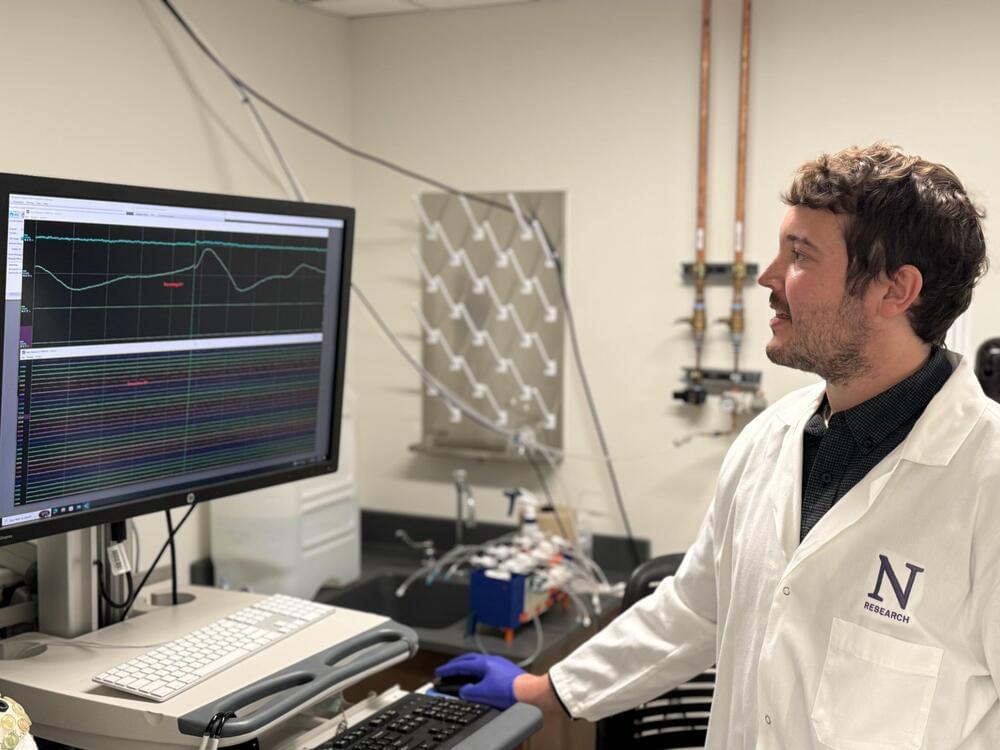
Just as a conductor coordinates different instruments in an orchestra to produce a symphony, breathing coordinates hippocampal brain waves to strengthen memory while we sleep, reports a new Northwestern Medicine study.
This is the first time breathing rhythms during sleep have been linked to these hippocampal brain waves—called slow waves, spindles and ripples—in humans. Scientists knew these waves were linked to memory but their underlying driver was unknown. The study is published in the Proceedings of the National Academy of Sciences.
“To strengthen memories, three special neural oscillations emerge and synchronize in the hippocampus during sleep, but they were thought to come and go at random times,” said senior study author Christina Zelano, professor of neurology at Northwestern University Feinberg School of Medicine. “We discovered that they are coordinated by breathing rhythms.”
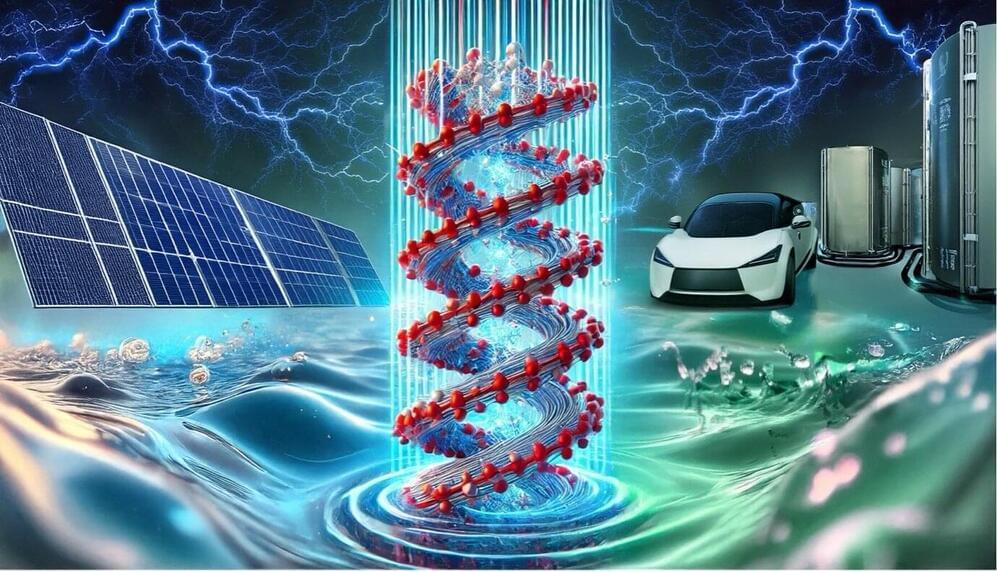
Nearly a quarter of Portuguese adults have allergies that cause a runny nose. This respiratory disease, formally called allergic rhinitis and frequently associated with asthma, is a common problem around the world, and the upper airway is a key target for research into the underlying disease processes.
Now a global team of researchers has discovered that patients with allergy-induced sniffles and asthma have different fungal colonies or mycobiomes in their noses, suggesting potential lines of inquiry for future treatments.
“We showed that allergic rhinitis samples displayed a significantly higher fungal diversity and a different fungal community structure compared to those of healthy controls,” said Dr. Luís Delgado of the University of Porto, Portugal, one of the authors of the article in Frontiers in Microbiology. “This may suggest that allergic rhinitis increases the diversity and changes the composition of the upper airway’s microbiome.”
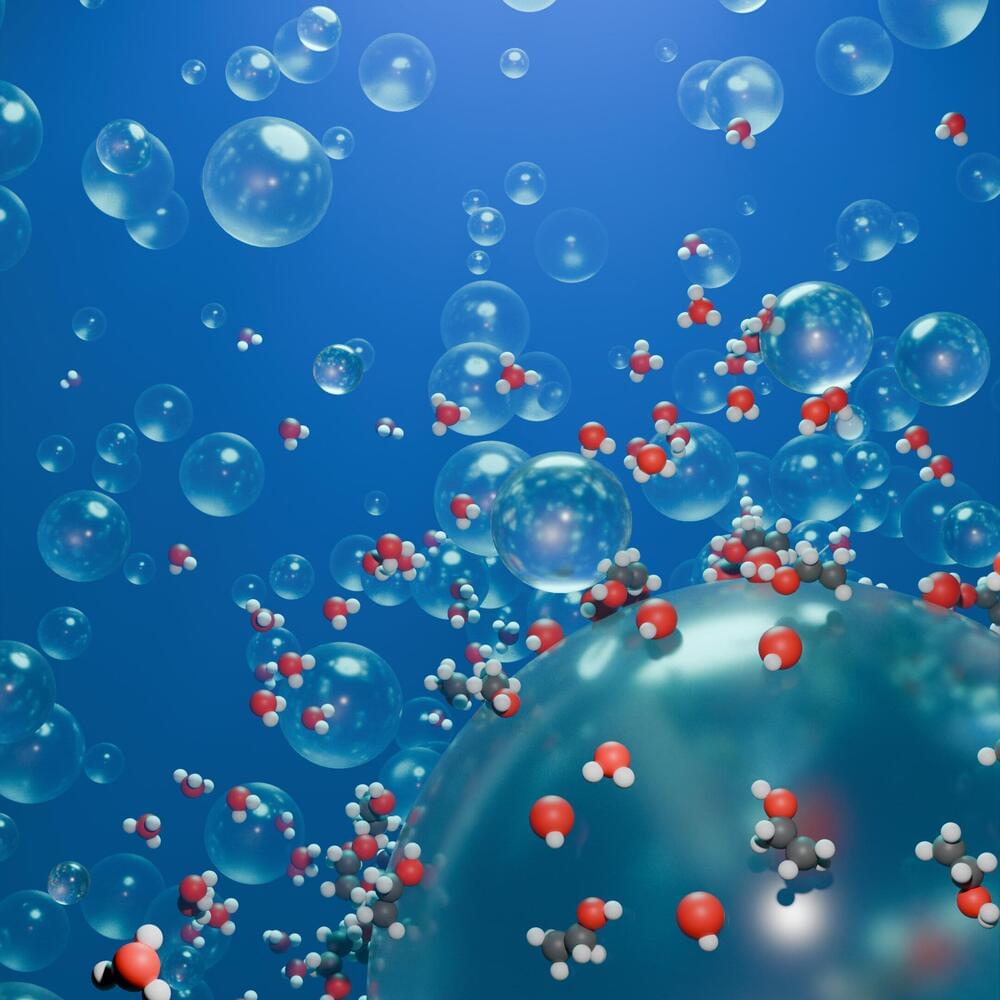
Gases are essential for many chemical reactions, and bubbles are one way for these gases to be held in solution. When compared to larger bubbles, nanobubbles have increased stability—meaning that they can remain in a solution longer without popping. Due to their increased stability, they allow for higher availability of gases in solution, allowing more time for chemical reactions to occur.
Led by Dr. Hamidreza Samouei, researchers at Texas A&M University are advancing their understanding of what makes nanobubbles—bubbles with diameters smaller than a single strand of hair—so stable and what factors play a role in their stability. Their findings appear in a recent issue of The Journal of Physical Chemistry.
“When we inject gas at the industrial scale, we don’t want to waste that gas. We want to maximize its use for chemical reactions,” said Samouei, a research assistant professor in the Harold Vance Department of Petroleum Engineering. “That’s the main purpose, to keep the gas in solution for a very, very long time, ideally infinite time; to keep the gas in solution without bursting.”
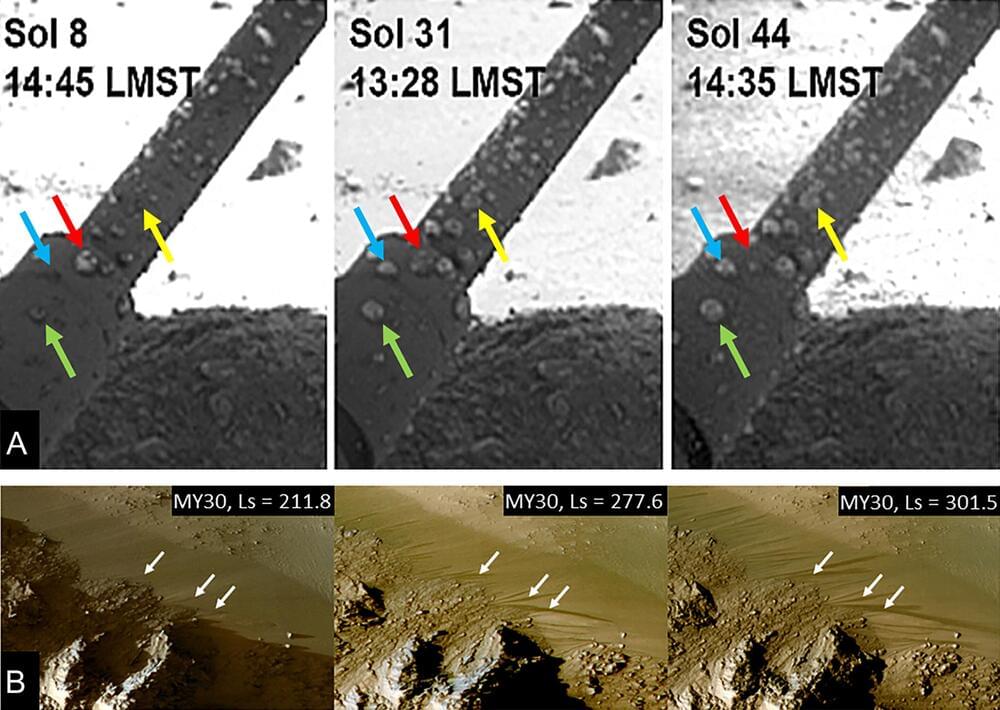
More than a hundred years ago, astronomer Percival Lowell made the case for the existence of canals on Mars designed to redistribute water from the Martian ice caps to its lower, drier latitudes. This necessarily meant the existence of Martians to build the canals.
While Lowell was proven wrong by better telescopes, the question of whether there’s liquid water on Mars continues to tantalize researchers. Liquid water is a critical precondition for a habitable planet. Yet the combination of low temperature, atmospheric pressure and water vapor pressure on Mars means any liquid water found there would likely freeze, boil or evaporate immediately, making its presence unlikely.
Still, researchers continue to make the case for the presence of liquid water on Mars.
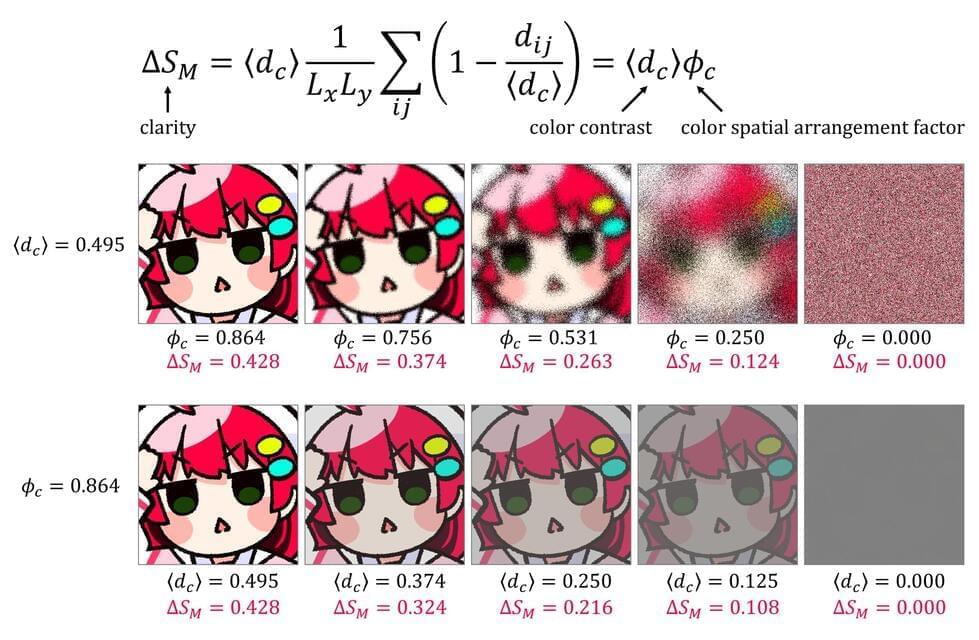
When analyzing artworks, understanding the visual clarity of compositions is crucial. Inspired by digital artists, Okinawa Institute of Science and Technology (OIST) researchers from the Mechanics and Materials Unit have created a metric to quantify clarity in digital images. As a result, scientists can accurately capture changes in structure during artistic processes and physical transformations.
This new metric can improve analysis and decision-making across the scientific and creative domains, potentially transforming how we understand and evaluate the structure of images. It has been tested on digital artworks and physical systems. The research is published in the journal PNAS.
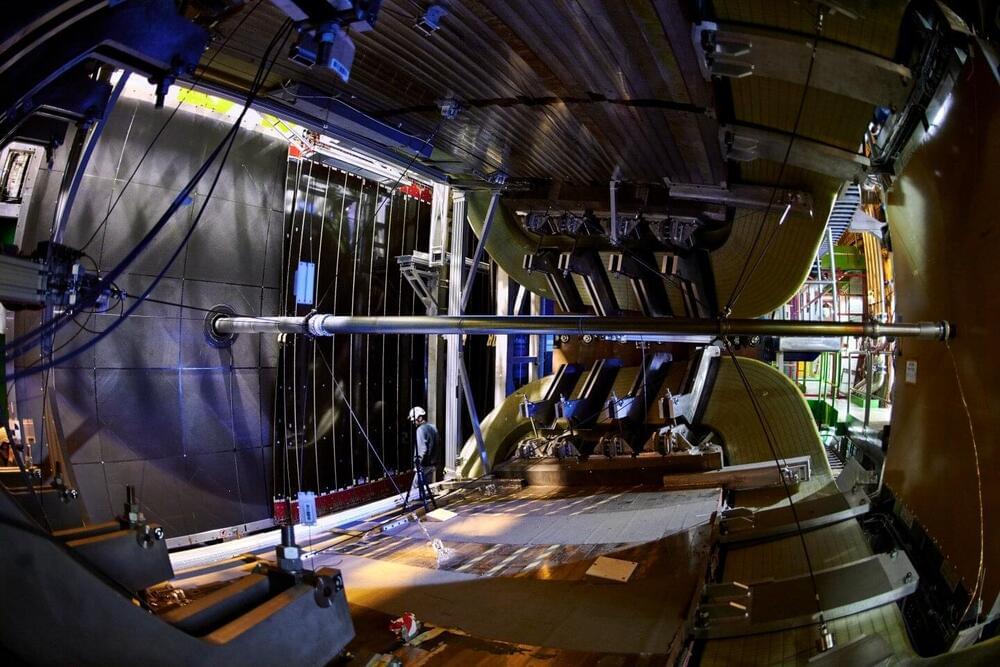
In the Big Bang, matter and antimatter should have been created in equal amounts. But fast forward 13.8 billion years to the present day, and the universe is made almost entirely of matter, so something must have happened to create this imbalance.
The Standard Model of particle physics predicts an asymmetry between matter and antimatter known as charge–parity (CP) violation. But the size of this asymmetry in the Standard Model is not large enough to account for the imbalance and the asymmetry has so far been observed only in certain decays of particles called mesons, which are made of a quark and an antiquark. It remains to be seen in other meson decays and in decays of other types of particles, such as three-quark particles called baryons.
In two new articles posted to the arXiv preprint server, the LHCb collaboration at the Large Hadron Collider (LHC) reports seeing evidence of CP violation in decays of baryons and in decays of beauty hadrons into charmonium particles, shedding light on these two pieces of the matter–antimatter puzzle.
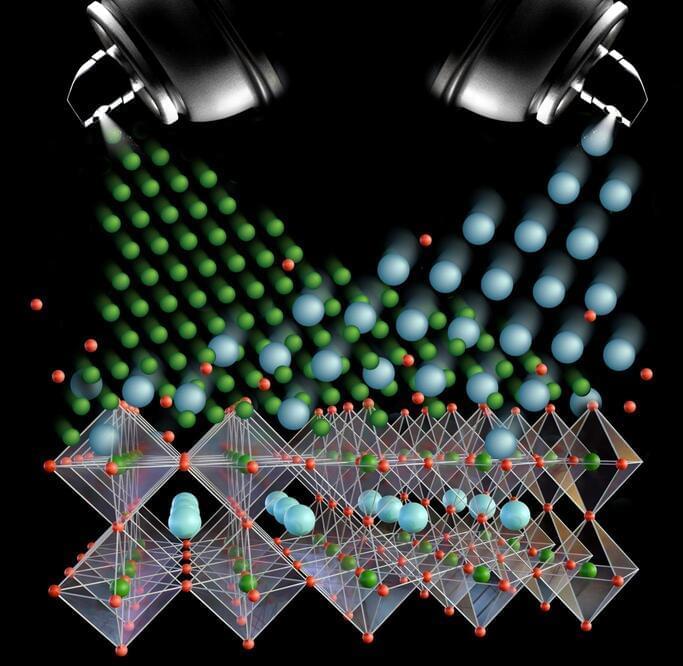
Researchers have developed a technique called “atomic spray painting” using molecular beam epitaxy to strain-tune potassium niobate, enhancing its ferroelectric properties.
This method allows precise manipulation of material properties, with potential applications in green technologies, quantum computing, and space exploration.
Material Strain Tuning
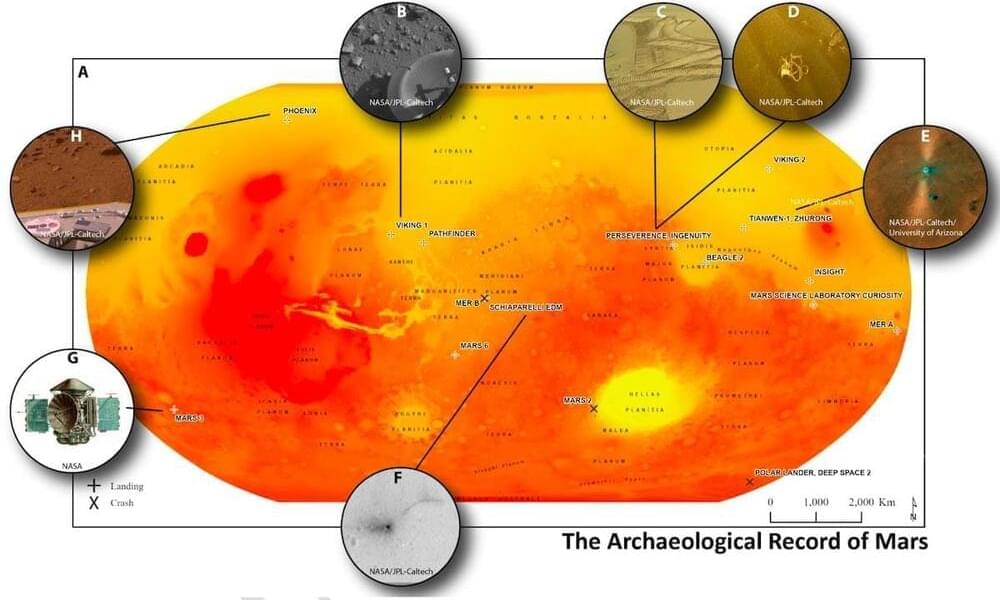
Human-made objects on Mars, including spacecraft, landers, and rovers, may hold significant archaeological value rather than being dismissed as space debris.
Scholars propose cataloging and preserving these artifacts to document humanity’s early interplanetary exploration and ensure future missions respect these historical markers.
Mars as a new frontier: understanding the value of space debris.